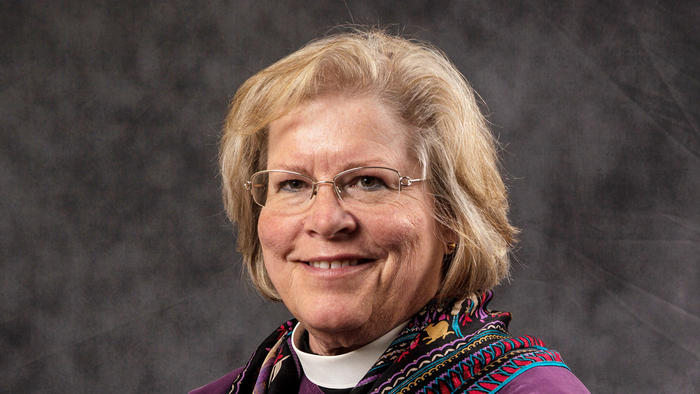More "Agony in the Garden" over Cook Arrest
By Dan Rodricks
The Episcopal Church's very public "Agony in the Garden" over the Heather Cook case — with most of the angst focused on whether church leaders knew about her drinking problem before they made her a bishop — continues. Now a high-ranking official is calling for the national church to officially "repent for our role" in the death of bicyclist Thomas Palermo. Perhaps it's the Catholic in me, but I associate "repent" with sin, a considerable step above a mere wrong or mistake that would require apology. Sin calls for repentance. So, with that word, the Rev. Gay Clark Jennings, president of the House of Deputies of the Episcopal Church, elevates this tragedy into a sphere where the laity fear to tread — into the realm of moral evil. That's somewhere high above criminal law, and well above my credentials, up in the clouds where clergy agonize among themselves. That's what spiritual leaders are ordained to do. They wrestle with large moral questions. Among many instructions, they tell us what's sinful and what isn't. But I have to ask: What sin is Jennings suggesting here? A lie of omission? You could take that from the questions that keep coming up: How did Cook win election last year as Maryland's bishop suffragan when she had received probation before judgment for drunken driving on the Eastern Shore in 2010? Sub-question: Why were those who elected her not made aware of that incident ahead of the vote? "Many Episcopalians are asking what people in positions of authority in the church knew about her history of addiction and driving while under the influence of alcohol," Jennings said. Of course, none of this appears to have been an issue until Dec. 27. That's the day Palermo was killed while riding his bicycle on Roland Avenue in North Baltimore. Cook has been charged with hitting him with her car as she was texting and driving drunk. Among the many charges against her: leaving the scene of an accident. Back to Jennings' statement: Clearly, what she is suggesting is that church leaders sinned by not telling all involved in her election about Cook's 2010 conviction. It's further suggested that those who elevated and confirmed Cook as a bishop somehow contributed to Palermo's death, and for this the church must repent. I don't see it. Despite having never been ordained, having never visited the high clouds of theological deliberations, I think I can still separate these things out. It does not matter that Cook was a bishop at the time of Palermo's death. The title is irrelevant. However, in light of this tragedy, it obviously matters a lot to Episcopal leaders that Cook was elected a bishop after being placed on probation for drunken driving. But what does that agonized concern suggest? It suggests that the electors might have voted her down had they known about the 2010 incident. And if that's the case, what does that say about the leaders of the church? That they think alcoholism is a moral failing? A sin? That one offense erases all hope of career advancement? That a drunk can never be trusted again? That a recovering alcoholic has no moral authority? I am hitting a tender point: the nation's delicate condition when it comes to alcoholics and their disease. Some of us still make harsh judgments about drinkers — especially if you've ever lived with one — but throughout most of American society, there is either sympathy for or ambivalence about those who struggle with the bottle. And booze is all around us. In courts, in boardrooms and offices, in all walks of life, alcoholism is about second chances. People are not considered inherently unfit for a job because they have a disease. In Hagerstown a few years ago, a judge who had a problem with drink was required to take a blood-alcohol test twice a day — once before he went on the bench and again after lunch. That might strike you as crazy, but that's the extent we go to give second chances. Plenty of judges have gone easy on drunken drivers, particularly those who stood before them on a first offense. As for Jennings and the House of Deputies, I leave it to them to sort out the Episcopal Church's future policies and teachings on alcohol. They can "repent" if they feel they must. But down here on the ground, I can at least say this much: If the church wants to examine anything, it should examine its stewardship of the woman it made a bishop. Once Cook's problem was established in 2010, did someone keep an eye on her? Did she have a recovery plan? Did the church watch for signs of relapse or did it ignore recurring symptoms? Those questions are far more important than any about her election. Contact: drodricks@baltsun.com
|
.
Any original material on these pages is copyright © BishopAccountability.org 2004. Reproduce freely with attribution.
